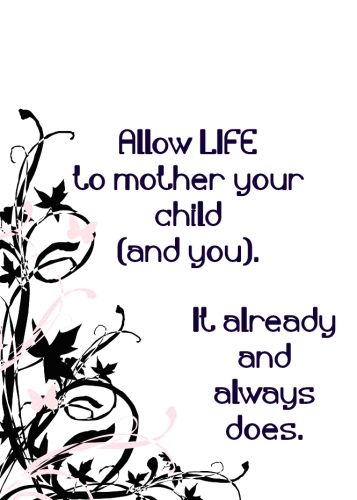-
THE WITCH ON THE MOON-CARVED CLIFFS, a fairy tale for enlightenment and wonder
Fate does what it likes. Do not faint away. The follies of men bow beneath the fierce Prevailing Wind—come from the Beginning—into unexpected good. Here is our Crone with a story to tell. She walks a garden growing wild, its fetching pearl leaves carved by the moon. Come, listen.
You’re invited to make what meaning you will.

A mother who felt as if all the natural world was her body stood trial before a hoard of men. For witchery, she was swiftly condemned.
The love of miraculous workings meant banishment to a tower battered by endless maelstroms upon an island far, far away in a dark sea. And so the mother clung to her three little daughters in the rotten belly of a creaking ship.
When at last they were brought on deck, the mother and her little daughters beheld cliffs carved by the moon—their new home. The captain’s men went to toss them overboard despite the mother’s frantic pleas.
“Witches float and we men know it,” said the captain. “We’ll not be deceived! Nor shall we perish ourselves upon sharp rocks.”
Neither the mother nor her three daughters were fated to drown. A sudden wave carried them to watery caves, and up through ancient stone tunnels they climbed to take up residence in a bleak tower. There they found heavy cloaks to don so that they might walk the edges of cliffs and love one another as best they could beside a violent sea.
 The daughters grew into young women, and one inevitable day a feather found its way to the birdless island with its waves crashing against moon-chiseled cliffs. This feather was the exact, hated ingredient the mother needed. She buried the feather within the folds of her black cloak, and there it stayed for countless nights as she practiced grief.
The daughters grew into young women, and one inevitable day a feather found its way to the birdless island with its waves crashing against moon-chiseled cliffs. This feather was the exact, hated ingredient the mother needed. She buried the feather within the folds of her black cloak, and there it stayed for countless nights as she practiced grief. In an exquisite act of love, the mother faced reality. She conjured a raven from the feather and gave it the wings of a phantom ship. Then she kissed her firstborn goodbye.
“You shall be the first to be saved from this vile exile,” said the mother.
“But I like it here with the battered sky and bruised waves,” protested the eldest daughter. “Not only that. I love the echoing of our tower, the floors of rotted timber, and the iron stairs crusted with salt. Is it not perfect? I feel as if I live inside a drowned ship!” At this, the eldest daughter hugged herself and twirled with delight. Still, she was an obedient child and offered herself up to the talons of the raven to carry her back to the normal world.
As is the case with all birds, this raven possessed a mind of its own and released the eldest daughter from its talons. Thus she plummeted through thunder into the vast seawater.
In times of dire need, a mother’s love may work quick magic. This was one of those times. A spell arrived like a despised gift on the mother’s lips, so that the eldest daughter transformed into a mermaid before she could drown.
“Come back to me,” cried out the mother as she held fast to her remaining daughters in the bitter, slashing rain.
The eldest daughter did not return, though the mother could see her pale face upon the crests of salty swells, her hair already tangled with seaweed and the flush of her cheeks turned green.
The middle daughter couldn’t get over what had happened to her big sister. She asked to be a mermaid, too, but the mother balked.
“Don’t be silly,” said the mother. “I will find a way to return you to the normal world where you are meant to be. Pretty dresses will be there for you to wear.”
The middle daughter wasn’t having it. She didn’t want to be pretty, she wanted to have fun. She wished for excitement and a powerful tail. It so happened this daughter possessed her own woman’s talent and took matters into her own hands.
Her first fledgling tries merely produced an oily smell to her breath. Yet did the middle daughter work and work with words. In secret did she tweak her impassioned spell. When it felt right, she whispered a carefully composed combination of syllables between sips of saltwater from a conch shell and that did the trick.
When the middle daughter didn’t come in from the cliffs that night, the mother looked out to see the silhouette of her defiant daughter missing her legs and flopping toward the edge of the cliffs in an enormous black and pearl-scaled tail.
The mother fell into despair to see her lovely daughter trying to find her way home to one that was not her own.
“No, come back!” screamed the mother, but it was too late. Her middle daughter plunged over the cliffs with her monstrous tail and into the stealing sea.
 The mother grieved. She pointed a broken heart at her youngest daughter. “Don’t even think about it,” she said.
The mother grieved. She pointed a broken heart at her youngest daughter. “Don’t even think about it,” she said.Yet young ones were never meant to comprehend the suffering of a mother.
This last daughter took up eating the crunchy shells of crabs until her every tooth was broken to a sharp point. Unable to resist the call of the wild any longer, she ran and leaped from the cliffs with her begging mother chasing after.
The youngest daughter swam out, out, out as if she had no fear inside herself whatsoever. The inevitable happened as usual and her pretty head slipped beneath the roiling sea.
You must understand, the mother had no choice. She fell to her knees, lifted her arms, and screeched the awful spell into howling winds rather than have her beloved child drown.
Now we see the mother in her cloak on the moon-carved cliffs, alone.
She’ll be the same as her child nevermore.
Can you feel it? The wind blows colder than it did before.
Lean closer to the fire. I will tell you how this story goes on as it must, as all life stories do. For as you know from this tale so far, not even a witch can control the way Life moves.
The mermaid-daughters visited their mother from time to time. Though it wasn’t possible to climb up through the watery caves without legs, how easy and fun it was to ride the waves to land upon high rocks! Then would the mother sit with her face buried deep inside the hood of her black cloak, gazing down with watery eyes from a cliff’s edge.
She listened to mermaid-daughters tell of incomprehensible things, such as the fun of hunting mackerel freshly escaped from the cruelty of a fishermen’s net. Her daughters jabbered about the squirt of a squid’s ink and how it might be collected to stain their lips. At times they grew serious, speaking of the need to discern how it is that underwater winds work to make rivers in the sea.
The mother pretended. She nodded when her daughters frowned or twisted hair in frustration over ships that wouldn’t go down.
The mother pretended. She nodded as if perfectly understanding the pleasant wait required before letting out a long-held breath that arrived sweet, and profound.
How strange to the mother her daughters had become! For when lightning failed to strike close enough to their liking, they cursed in anger.
This, then, was a new grief. The mother gazed at her daughters and felt unreal, as if she had lost her own body.
“My own children are a mystery to me,” said the mother. “I try but cannot understand these lives they live.” And shame attached itself to grief, which happens more often than you might think.
The mermaid-daughters vanished for a season to follow the fish. The mother’s mind teetered, and she feared being left to her asylum. She walked the weather-ravaged cliffs on the lookout for passing ships. Yet none came to her, for her island was too silent.
One bleak morning the mother broke a nail to the quick while scratching caked salt from the tower’s twirling stairsteps. She stood with a cry and took a wrong step. When her somersaulting ended, she lay crooked on her back and staring up at spidery rafters. There, she spied witchery-things which long ago she’d hidden in a flour sack and tied up high with corset string.
A haunting settled itself over her soul. She decided to reminisce.
By a window, the mother turned parchment pages of what men once called an evil book. She examined her old drawings of things which grow in the earth. And sighed. Another rummage in the flour sack produced a forgotten satchel of birdseed collected under a spoon-blue moon.
Despite knowing better, the mother felt an old thrill.
“Once I was a witch,” whispered the mother. A grin came against her will, and she covered it quick.
What was natural took over whether the mother liked it or not. She found little need for sleep that oddly stormless night. Rather, she whiled the secret hours tossing birdseed from the edges of the cliffs until bluebirds blushed the moon pink with their secret messages.
 When an urge to dig overwhelmed the mother, she unearthed forgotten roots which still existed. These she coaxed into life with tender verbs.
When an urge to dig overwhelmed the mother, she unearthed forgotten roots which still existed. These she coaxed into life with tender verbs.“Old roots reach for the sky best of all,” she said.
Come the dawn, an idea burst into the mother’s head. She brought together pieces of shattered keepsakes, strands of seaweed, and her own white hair. From this meaningful assortment of ingredients she fashioned a circle, the shape witches rightly revere. Tossing back the hood of her cloak, she set the wreath upon her head.
It burst into blooms. Pink ones, and cherry red.
Far away where the sea plunges to its darkest and deepest, the mermaid-daughters surfaced. They swept mighty tails to lift their seaweed-tangled hair well above the waves and listened to what sounded like a wild woman’s merry-making.
Intrigued, they returned to the moon-carved cliffs and got a shock. For they had quite forgotten what it was to behold their mother overcome by outrageous creativity.
It was a sight they could hardly believe.
“Mother, here we are on the high rocks,” called out the mermaid-daughters. “Come tell us what has gotten into you!”
And so, three astonished mermaids listened as their mother talked on the subject of incomprehensible things, such as the merits of juicing windberry roots with fallen eyelashes on wishful days. Not only that. Their mother jabbered about collecting sunbeams in tarnished thimbles and how the celestial light might be used to magnify wondrous, if tiny, things.
At times their mother grew serious. She spoke of turret spiders getting themselves caught up in a winter’s gale and what might be done to help them.
The mermaid-daughters pretended. They nodded as their mother frowned and twisted her hair, as if they perfectly understood the frustration that comes of a mushroom refusing to turn itself purple-dotted.
And when a cold wave caught their mother full in the face, she cursed—cursed! She did it as competently as any sailor. The mermaid-daughters knew of such stunning curses, for they enjoyed catching sailors beneath a waning moon. (The mermaid-daughters were very big on waning moons, under the light of which they would lower their chins and stare up from the waves with spellbinding siren eyes.)
Yet now their attention caught on their mother, who covered her mouth quick as if to stop the sheer DAZING curse which had already gotten loose.
There came a pregnant pause. Then did the mermaid-daughters fall from their rocks. The mother listened to deafening squeals which she rightly guessed to be the racket mermaids make—
When they howl with laughter.
This vision of mirth infected the mother, no different than the sight of tears has power to do. It did not matter that she possessed no understanding of what her daughters laughed at.
The mother couldn’t help it. She burst into laughter, too. After all. It’s the way of things for a feeling in one person to jump into another. No knowing of a reason is needed for this to happen.
Hasn’t this happened to you?
The mother snorted with hilarity. She could not stop, and this set the daughters off even worse. Laughter took their breath away.
As did their spirited mother.
After this the mother-witch didn’t bother fretting over the details of whatever her mermaid daughters spoke of. She simply and open-heartedly witnessed their joys, their sorrows, their fantastic curiosities.
Their feelings she well understood.
This is how the mermaid-daughters came to feel utterly known and cherished.
How exactly alike the mother and her daughters were underneath witchy wreaths and temperamental tails! They had come to live in very different worlds, yet did they experience those different worlds in the very same ways.
As if they were One Body.
You may think on this now, for the story is done.
Except for its proper fairy tale ending:
Three summers and eleven winters after, a ship of condemning men passed by the island with its cliffs carved by the moon. And there was heard a raucous cackling and soprano squealing carried on the winds.
These men couldn’t help laughing, too. They naively turned their sails to go and see…
Beneath a waning moon.

The experience of things is ever so much greater (and unifying) than the knowledge of things. This makes us all more alike than we commonly perceive.
It makes us The Same.
“Where you are understood, you are at home.” ~John O’Donohue, from Anam Cara
If you found this tale of One Body soothing, you might like more of the Crone’s fairy tales. You’re cordially invited to SUBSCRIBE. 🙂
And pretty please LEAVE A COMMENT below! It helps me to know what readers like in stories and encourages me to keep writing these tales.
I wish you many WHOOSHES OF WONDER on this day which has so impossibly found all of us here together.
~Cricket
Image Credits:
Featured image of ship on stormy sea by Bruce Bouley
Tower by Caroline Sattler
Mermaid <a href=’https://pngtree.com/so/mermaid-clipart’>mermaid clipart png from pngtree.com</a>
Pink moon <a href=’https://pngtree.com/so/pink-moon’>pink moon png from pngtree.com</a>
Mermaid on fish by famed illustrator Arthur Rackham
-
The Seaweed on the Pillow, a fairy tale for enlightenment




